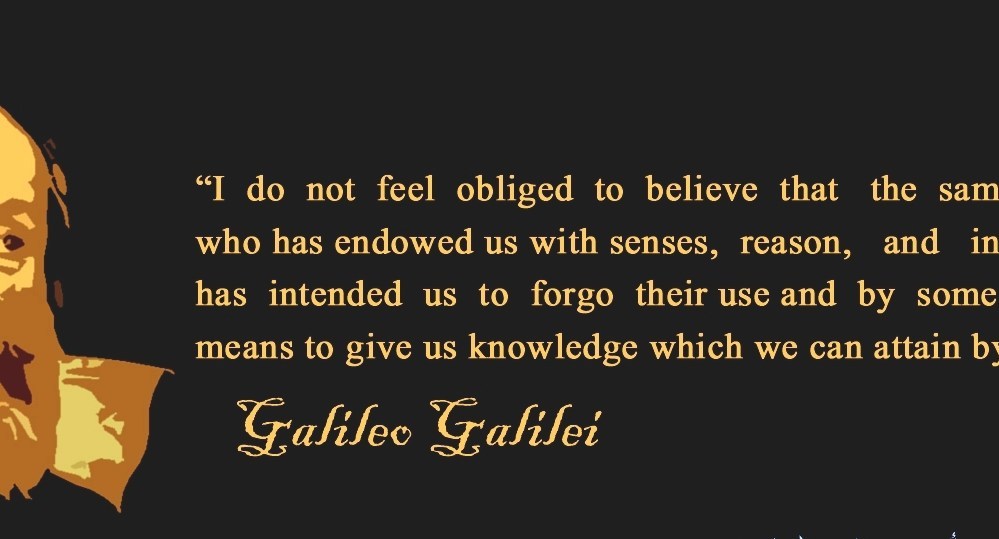

But in his time, those laws were not written in any way.

We still don't exactly understand it, but it's very natural that all the laws of physics are written as mathematical expressions or equations.

Livio: That was one of his incredible intuitions. Today, this is so natural to us. He consulted with four art experts specializing in Murillo's art, and all determined, based on photographs of the canvas, that it was not the Spanish artist's work.Īrs: Perhaps Galileo never actually said "And yet it moves." But one of the most famous genuine quotes attributed to Galileo is this: "The book of Nature is written in the language of mathematics." When Livio decided to follow up on Favaro's work more than a century later, he found that nobody knew the current location of the Murillo painting. Yet the painting was never examined by any independent art historians. That raised the possibility that Galileo had said those words, just not in front of the Inquisitor. Galileo served the first six months of his house arrest at the archbishop's home. The painting was attributed to a Spanish painter named Bartolomé Esteban Murillo, and Van Belle thought it may have once belonged to an army commander named Ottavio Piccolomini, brother of the Archbishop of Siena. That year, Favaro received a letter from a man in Belgium named Jules Van Belle, claiming to own a painting, circa 1643-shortly after Galileo's death in 1642-that depicted Galileo in prison, holding a nail in his right hand, having traced the Earth moving around the Sun. In 1911, he also published several articles detailing his efforts to determine the origin of the famous phrase.

But then a science historian named Antonio Favaro spent four decades studying Galileo's life and work, publishing a massive tome, The Works of Galileo Galilei. That would point to the story being a myth. According to Livio, the first mention in print is in a single paragraph in the 1757 book, The Italian Library, by Giuseppe Baretti, written over 100 years after Galileo's death. The earliest biography of Galileo was written by his protege, Vincenzo Viviana in 1655-1656, with no mention of the phrase. It resulted in a separate academic paper about his findings. Livio is the author of a new biography of the famous scientist, Galileo and the Science Deniers, and while researching the book, he found himself captivated by the longstanding debate about whether or not Galileo really spoke those words. "It would have been crazy for Galileo to say that in front of the Inquisitor," astrophysicist Mario Livio told Ars. Legend has it that after he did so, he muttered, " E pur si muove" ("And yet it moves"), meaning the Earth.Īs with many such legends, it's probably too good to be true. He was never formally charged with heresy, but he was forced to recant his stance. The Earth revolved around the Sun, not the other way around, contrary to the Catholic Church's teachings at the time.
AND YET IT MOVES GALIELO TRIAL
Galileo Galilei famously stood trial for his insistence-based on astronomical observations through his telescopes-that the Copernican model of the Solar System was correct.


 0 kommentar(er)
0 kommentar(er)
